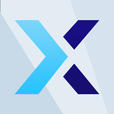As financial markets continue to evolve, so do the tools and platforms available for traders. Among the most discussed and debated methods in today’s market is CFD (Contract for Difference) trading. But if youre someone who values both financial growth and your faith, you might be asking: Is CFD trading halal? Can Muslims participate in this form of trading without compromising religious beliefs? Let’s dive into the nuances of CFD trading in the context of Islamic finance.
In recent years, CFD trading has become a dominant force in both traditional and decentralized finance (DeFi) spaces. With the rise of Web3, more traders are looking into diverse asset classes like forex, stocks, crypto, indices, commodities, and even options. The global appeal lies in the ability to speculate on price movements without owning the underlying asset.
However, the question remains: Can Muslims engage in this popular trading practice while staying true to their faith?
At its core, CFD trading involves buying or selling contracts based on the price difference of an asset, without actually owning the asset itself. This is where the dilemma lies. From an Islamic finance perspective, CFDs are a grey area because they often involve leverage, speculation, and short-selling, which might seem incompatible with Islamic principles of finance.
Islamic finance is built on Shariah law, which prohibits certain financial activities like riba (interest), gharar (excessive uncertainty), and maysir (gambling). So, does CFD trading fall into any of these categories?
The answer isn’t straightforward.
One of the major features of CFD trading is leverage, which allows traders to control a larger position than their initial investment. While leverage amplifies potential profits, it also increases the risk significantly. In Islamic finance, leveraging can sometimes be considered a form of riba, which is prohibited, as it can involve paying or receiving interest to facilitate trades.
However, there are solutions. Many brokers today offer Islamic accounts specifically tailored for Muslim traders. These accounts avoid interest payments by not charging overnight fees, making them more compatible with Shariah law. These accounts allow traders to participate in CFD trading without engaging in interest-bearing transactions, addressing one of the primary concerns.
In CFD trading, traders are essentially speculating on the price movement of an asset. The line between speculation and gambling can often be blurry. Gharar—excessive uncertainty or ambiguity—is a key principle in Islamic finance, and trading contracts where the outcome is uncertain can be seen as a violation of this principle.
While CFD trading carries risks, much like any form of speculative trading, the emphasis should be on knowledge, strategy, and analysis rather than blind speculation. In fact, Islamic scholars have differing opinions on whether speculation is inherently haram or permissible, provided it’s done with a clear strategy and in a manner that doesn’t violate Islamic ethical standards.
A crucial aspect of Islamic finance is ethics. It’s not just about avoiding prohibited actions but also ensuring that the financial instruments and platforms used are ethical and transparent. In this sense, the brokers offering CFD trading services need to align with Islamic values, providing clear and transparent pricing without hidden charges or excessive risk-taking.
Many Islamic CFD brokers now operate under stringent guidelines that meet both legal and ethical standards. By choosing the right platform, traders can ensure that their investments are ethical, transparent, and compliant with Islamic finance principles.
As Web3 continues to grow, decentralized finance (DeFi) is revolutionizing the way financial transactions are conducted. One of the biggest advantages of CFD trading in a Web3 environment is the accessibility it provides. Traders can engage in a variety of asset classes from anywhere in the world, creating new opportunities for individuals from diverse backgrounds.
Decentralized platforms offer more control, privacy, and transparency, which aligns with the ethical requirements in Islamic finance. Without intermediaries, the risk of exploiting traders through hidden fees or unethical practices is minimized.
However, there are challenges. The rapid pace of technological change, combined with the evolving nature of regulatory frameworks, means that traders must stay informed. Smart contract risks, security vulnerabilities, and the potential for market manipulation are all factors that need to be carefully considered. In this fast-paced world of Web3 finance, it’s essential to adopt sound risk management strategies, such as using stop-loss orders and only leveraging capital you’re prepared to lose.
Looking ahead, AI-driven trading is poised to transform CFD trading even further. Advanced algorithms and machine learning models can now analyze vast amounts of data in real-time to predict price movements, giving traders an edge. But where does that leave the Islamic finance perspective?
As long as these AI tools are used responsibly and ethically, they could become a valuable asset for Muslim traders. The key lies in ensuring that these tools operate within Shariah-compliant frameworks, avoiding interest-based transactions, and reducing risk exposure.
Smart contracts are also emerging as a game-changer in decentralized finance. By eliminating intermediaries, they provide a more transparent and efficient way of executing financial transactions. The growing adoption of smart contracts could be the answer to many of the ethical dilemmas faced by traders seeking a halal way to engage in CFD trading.
If youre serious about CFD trading and want to stay true to your values, here are some strategies to consider:
So, is CFD trading halal? It depends. While traditional CFD trading can sometimes conflict with the principles of Islamic finance, many traders today are finding ways to engage in halal CFD trading through Islamic accounts, transparent platforms, and ethical trading practices.
The rise of decentralized finance, along with the advent of AI-driven trading and smart contracts, is shaping the future of the financial industry. If approached responsibly and ethically, CFD trading can be a viable option for Muslims who wish to participate in modern financial markets without compromising their faith.
“Trade smart, trade halal.”




